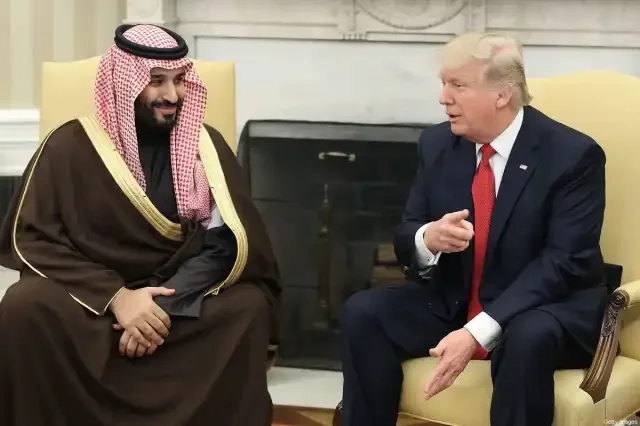Saudi Arabia’s de facto ruler visited the White House on Tuesday for discussions with U.S. President Donald Trump.
This high-level meeting aims to solidify long-standing cooperation on oil stability and security. It also seeks to expand ties in commerce, technology, and potentially even civil nuclear energy.
This trip marks the first time Crown Prince Mohammed bin Salman (MBS) has traveled to the United States since the 2018 killing of Saudi critic Jamal Khashoggi. U.S. intelligence previously concluded that MBS approved the operation targeting Khashoggi.
Turning the Page on Controversy
The Crown Prince, widely recognized as MBS, has denied directly ordering the operation. However, he accepted responsibility for the incident as the kingdom’s ruling authority.
Over seven years later, the world’s largest economy and the top global oil producer are determined to reset their relationship.
President Trump is focused on realizing a $600 billion Saudi investment pledge. Analysts predict Trump will likely avoid mentioning human rights concerns during this current trip.
The Saudi leader is seeking firm security guarantees amid regional instability. He is also pressing for access to advanced artificial intelligence (AI) technology. Furthermore, he seeks progress toward an agreement supporting a Saudi civilian nuclear program.
An international relations lecturer noted the shift: “There is a page that has been turned” regarding Khashoggi’s killing.
The Push for a Defense Pact
The U.S. and Saudi Arabia have historically exchanged favorable oil prices for U.S. security protection. This security equation was severely shaken when Washington did not retaliate after Iran attacked Saudi oil installations in 2019. Concerns resurfaced recently when Israel struck targets in Doha, Qatar.
Following the Qatar incident, Trump signed a defense pact with Qatar via executive order. Analysts believe the Saudis will likely receive a similar arrangement.
Riyadh has been pushing for a defense pact ratified by the U.S. Congress. Washington, however, has made this contingent upon Saudi Arabia fully normalizing ties with Israel. Riyadh, in turn, has linked normalization to a commitment to Palestinian statehood from Israel’s current government.
Israeli Prime Minister Benjamin Netanyahu has reaffirmed his staunch opposition to Palestinian independence.
A former Middle East negotiator anticipates an executive order will be issued. It would mandate that the U.S. and the Saudis “immediately consult on what to do in response to the threat” without fully committing Washington to active defense. This consultation could range from deploying missile batteries to actively engaging in combat.
Economic Diversification and AI Race
Riyadh is prioritizing deals under its ambitious Vision 2030 plan. This plan seeks to diversify the economy and strengthen the kingdom’s competitive standing against regional rivals.
Securing approval for advanced computer chips is vital to Saudi Arabia’s goal of becoming a central node in global AI development. This would allow the kingdom to compete with rivals like the UAE.
MBS also aims to finalize an agreement with Washington on a Saudi civilian nuclear program. Such a deal would unlock access to U.S. nuclear technology and security guarantees.
Progress has been slow, as the Saudis resist a U.S. stipulation that would rule out enriching uranium or reprocessing spent fuel both potential paths to nuclear weapons. Analysts expect an announcement on a nuclear energy agreement, or at least a statement confirming substantial progress.




















